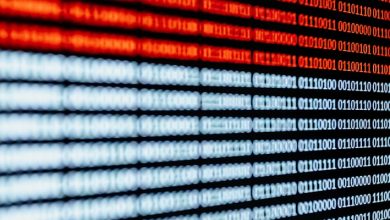The Role of AI in Enhancing Blockchain Technology

- Understanding the intersection of AI and blockchain technology
- Exploring the potential of AI in revolutionizing blockchain technology
- How AI is reshaping the future of blockchain
- The synergy between AI and blockchain for enhanced security and efficiency
- Challenges and opportunities in leveraging AI for blockchain advancements
- Case studies showcasing the successful integration of AI in blockchain projects
Understanding the intersection of AI and blockchain technology
Understanding the intersection of artificial intelligence and blockchain technology is crucial in grasping the full potential of these two innovative technologies. AI and blockchain are often viewed as separate entities, but when combined, they can create powerful solutions that drive advancements in various industries.
At the core of this intersection is the ability of AI to enhance the capabilities of blockchain technology. AI can be used to analyze large amounts of data on the blockchain, identify patterns, and make predictions based on this information. This can lead to more efficient transactions, improved security, and enhanced decision-making processes.
Additionally, AI can help automate certain tasks on the blockchain, such as smart contract execution and verification. This not only increases the speed of transactions but also reduces the potential for errors or fraud. By leveraging AI in this way, blockchain technology becomes more scalable and reliable.
Furthermore, AI can assist in enhancing the consensus mechanisms used in blockchain networks. By utilizing machine learning algorithms, blockchain systems can achieve greater consensus efficiency and accuracy. This can lead to faster transaction validation and improved network performance.
In conclusion, the convergence of AI and blockchain technology opens up a world of possibilities for innovation and disruption. By understanding how these two technologies intersect and complement each other, businesses and industries can harness their combined power to drive meaningful change and unlock new opportunities for growth and development.
Exploring the potential of AI in revolutionizing blockchain technology
Artificial Intelligence (AI) has the potential to significantly enhance and revolutionize blockchain technology. By leveraging AI algorithms, blockchain systems can become more efficient, secure, and scalable.
One way AI can improve blockchain technology is through enhanced security measures. AI-powered algorithms can detect and prevent fraudulent activities, such as hacking and data breaches, in real-time. This helps to maintain the integrity of the blockchain network and ensure that transactions are secure and transparent.
Additionally, AI can optimize the performance of blockchain systems by automating processes and streamlining operations. Machine learning algorithms can analyze large volumes of data to identify patterns and trends, leading to improved decision-making and resource allocation within the blockchain network.
Furthermore, AI can enhance the scalability of blockchain technology by optimizing the consensus mechanisms and improving the speed of transactions. This allows blockchain networks to handle a larger volume of transactions without compromising on security or efficiency.
In conclusion, the integration of AI into blockchain technology holds immense potential for transforming the way we think about decentralized systems. By harnessing the power of AI, blockchain networks can achieve new levels of security, efficiency, and scalability, paving the way for a more advanced and interconnected digital future.
How AI is reshaping the future of blockchain
Artificial intelligence (AI) is playing a crucial role in reshaping the future of blockchain technology. By leveraging AI algorithms, blockchain systems can enhance their efficiency, security, and scalability. One of the key ways AI is impacting blockchain is through data analysis and pattern recognition. AI can help blockchain networks process large amounts of data more quickly and accurately, leading to improved decision-making and performance.
Another area where AI is making a significant impact on blockchain is in the realm of smart contracts. AI-powered smart contracts can automatically execute transactions based on predefined conditions, without the need for human intervention. This automation not only speeds up the transaction process but also reduces the risk of errors and fraud.
Moreover, AI is being used to enhance blockchain security by detecting and preventing potential cyber threats in real-time. AI algorithms can analyze network behavior and identify suspicious activities, helping to protect blockchain networks from malicious attacks. This proactive approach to security is essential in safeguarding sensitive information and maintaining the integrity of blockchain systems.
The synergy between AI and blockchain for enhanced security and efficiency
The synergy between artificial intelligence (AI) and blockchain technology is revolutionizing the way we approach security and efficiency in various industries. By combining the capabilities of AI with the decentralized and secure nature of blockchain, organizations can enhance their overall cybersecurity measures and streamline their operations.
One of the key aspects of this synergy is the use of AI algorithms to detect and prevent potential security threats within blockchain networks. AI can analyze vast amounts of data in real-time, identifying patterns and anomalies that may indicate a security breach. By proactively monitoring the blockchain for suspicious activities, AI can help prevent unauthorized access and data manipulation.
Furthermore, AI-powered smart contracts can automate and optimize processes on the blockchain, increasing efficiency and reducing the risk of errors. These self-executing contracts can be programmed to trigger actions based on predefined conditions, streamlining transactions and eliminating the need for intermediaries.
Overall, the integration of AI and blockchain technology offers a powerful solution for enhancing security and efficiency in various sectors. By leveraging the strengths of both technologies, organizations can stay ahead of potential threats and improve their operational processes, ultimately leading to a more secure and productive environment.
Challenges and opportunities in leveraging AI for blockchain advancements
One of the main challenges in leveraging AI for blockchain advancements is the need for robust data management systems. AI algorithms require a large amount of data to effectively train and operate, which can be a challenge in the decentralized and secure environment of blockchain technology. Finding ways to securely and efficiently store and manage data for AI applications on the blockchain is crucial for its successful implementation.
Another challenge is ensuring the interoperability of AI and blockchain technologies. Integrating AI algorithms with blockchain networks requires careful planning and coordination to ensure that they can work together seamlessly. Developers need to find ways to make AI algorithms compatible with blockchain protocols to fully leverage the potential of both technologies.
Despite these challenges, there are numerous opportunities in leveraging AI for blockchain advancements. AI can help improve the scalability and efficiency of blockchain networks by optimizing processes and reducing the computational resources required for tasks such as consensus algorithms. By automating certain tasks through AI, blockchain networks can become more efficient and cost-effective.
Furthermore, AI can enhance the security of blockchain networks by detecting and preventing potential threats and vulnerabilities. AI algorithms can analyze patterns and anomalies in network behavior to identify malicious activities and protect the integrity of the blockchain. This proactive approach to security can help mitigate risks and enhance trust in blockchain technology.
Case studies showcasing the successful integration of AI in blockchain projects
Several case studies exemplify the successful integration of artificial intelligence in blockchain projects, showcasing the immense potential of this combination. These real-world examples demonstrate how AI can enhance blockchain technology, leading to improved efficiency, security, and scalability.
- One prominent case study involves a supply chain management system that utilizes AI algorithms to optimize logistics and track product authenticity. By integrating AI with blockchain, the system can detect anomalies in real-time, ensuring transparency and reducing the risk of fraud.
- Another compelling example is a healthcare platform that leverages AI to analyze patient data securely stored on a blockchain. The use of AI enables predictive analytics, personalized treatment plans, and enhanced data security, ultimately improving patient outcomes.
- In the financial sector, AI-powered blockchain projects are revolutionizing fraud detection and risk management. By combining AI’s predictive capabilities with blockchain’s immutable ledger, financial institutions can detect fraudulent activities more effectively and streamline compliance processes.
Overall, these case studies highlight the synergies between AI and blockchain technology, suggesting a promising future for innovative applications across various industries. As organizations continue to explore the potential of this integration, we can expect to see further advancements in efficiency, security, and trust in the digital landscape.



